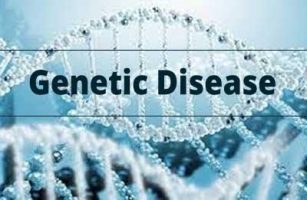- Home
- Editorial
- News
- Practice Guidelines
- Anesthesiology Guidelines
- Cancer Guidelines
- Cardiac Sciences Guidelines
- Critical Care Guidelines
- Dentistry Guidelines
- Dermatology Guidelines
- Diabetes and Endo Guidelines
- Diagnostics Guidelines
- ENT Guidelines
- Featured Practice Guidelines
- Gastroenterology Guidelines
- Geriatrics Guidelines
- Medicine Guidelines
- Nephrology Guidelines
- Neurosciences Guidelines
- Obs and Gynae Guidelines
- Ophthalmology Guidelines
- Orthopaedics Guidelines
- Paediatrics Guidelines
- Psychiatry Guidelines
- Pulmonology Guidelines
- Radiology Guidelines
- Surgery Guidelines
- Urology Guidelines
A simple DNA screening may detect 193 genetic diseases

A simple DNA test has been developed which can be performed at home and which may detect 193 childhood-onset diseases.The test developed by a US-based genomic testing company includes a gentle cheek swab which goes on to detect a host of diseases including epilepsy, muscular atrophy and cancer.
As a supplemental test, Sema4 Natali's screens for over five times the number of genetic diseases than a standard hospital test in the US, they said.
For all conditions covered by the test - including atypical epilepsy, spinal muscular atrophy, and childhood cancers - there are validated medical interventions that may positively influence a baby's future well-being when introduced early enough.
According to the company, the use of Sema4 Natalis should be reviewed and approved by a physician to ensure the test is medically appropriate for the child.
"Until now, families have been likely to be caught off-guard by these early-onset diseases, and the prognosis is often poor by the time symptoms have manifested," said Eric Schadt, Founder and Chief Executive Officer of Sema4.
"Thanks to breakthroughs in science and medicine, we can now identify babies at risk for these broader set of diseases and deliver interventions - sometimes as simple as vitamin supplements - in time to make a real difference," said Schadt.
Sema4 Natalis uses advanced DNA sequencing to analyse a baby's genes with the accuracy of the next-generation technology, the company said.
The test may help address the issue of undiagnosed pediatric illness by using next-generation DNA sequencing and analysis to supplement traditional newborn screening, it said.
cancerchildhood cancerschildhood onset diseasesDNADNA testEpilepsyEric Schadtgenetic diseasesmuscular atrophypediatric illnessSpinal Muscular Atrophysupplemental test
Source : PTINext Story
NO DATA FOUND

Disclaimer: This site is primarily intended for healthcare professionals. Any content/information on this website does not replace the advice of medical and/or health professionals and should not be construed as medical/diagnostic advice/endorsement or prescription. Use of this site is subject to our terms of use, privacy policy, advertisement policy. © 2020 Minerva Medical Treatment Pvt Ltd